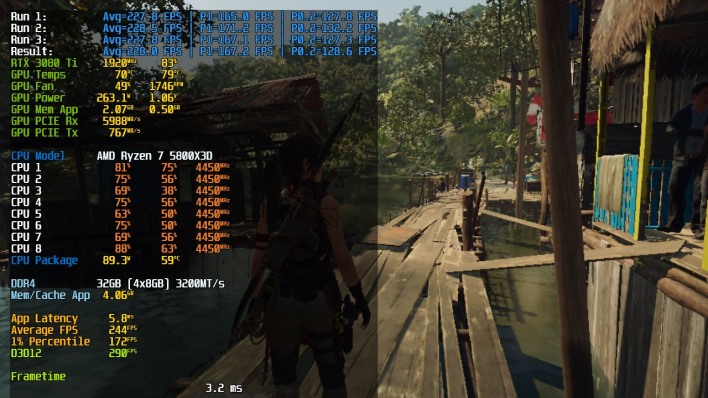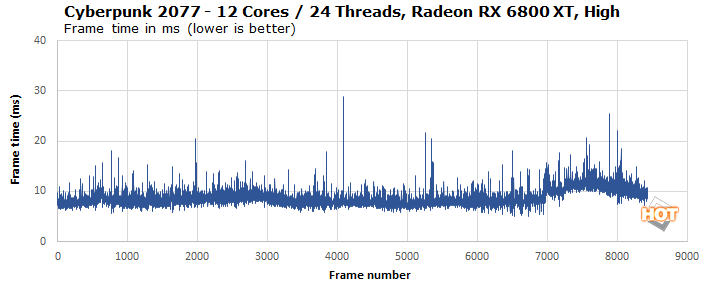Ryzen 7 5800X3D Scores A Decisive Victory Over Core i9-12900KS In Early Gaming Benchmark
AMD's Zen 4 processors that are supposedly launching in Q3 of this year will be the company's proper "response" to Alder Lake (and hopefully Raptor Lake, expected to launch in the same time frame), but in the interim it has a challenger for the throne: the Ryzen 7 5800X3D. When AMD announced the chip back at CES, a lot of people were disappointed that the "X3D" chips were in fact only going to be a single chip, and not a series of same.
However, it makes a lot of sense if you look at what the 3D V-cache gives the processor. Tripling the L3 cache helps reduce the frequency with which the processor has to go out to main memory, and in turn, improves single-threaded performance by improving CPU thread occupancy. In other words, the Ryzen 7 5800X3D isn't technically any faster on a single thread than a regular Ryzen 7 5800X—and in fact, it's slightly slower due to the lower clock rate, which you can't fix by overclocking it, by the way.
In real-world applications, though, the extra cache can clearly make a tremendous difference. We've already seen this with AMD's EPYC Milan-X processors, which see astonishing speed-ups in lots of HPC and enterprise applications compared to their non-stacked-die cousins. Some folks sneered at AMD rushing out a Ryzen 7 5800X with an extra 64MB of cache tacked on as a challenger for Intel's dominating Core i9-12900KS, but those folks may be mistaken.

We won't keep you in suspense: XanxoGaming's tests, done in cooperation with the developer of the wonderful CapFrameX utility, show the Ryzen 7 5800X3D absolutely trouncing the Core i9-12900K, and even scoring a decisive victory over the hot-clocked Core i9-12900KS. In a Shadow of the Tomb Raider benchmark, XanxoGaming recorded an average FPS result of 231 FPS for the Ryzen 7 5800X3D, while the Core i9-12900KS came up with "about 200."
We'd like to get excited over this result, but there are all kinds of reasons not to do so. For starters, XanxoGaming did not perform all of the tests; the Intel side of things was tested by the CapFrameX developer. The two say that they meticulously matched settings, but it's impossible to be sure. There's also the consideration that the two systems didn't use the same graphics cards. The Ryzen system was equipped with a powerful RTX 3080 Ti, while the Intel system outgunned it with an RTX 3090 Ti. Worse, the Ryzen system was equipped with low-latency DDR4-3200 CL14 memory, while the Intel machine used relatively sluggish DDR5-4800 CL40 RAM.



